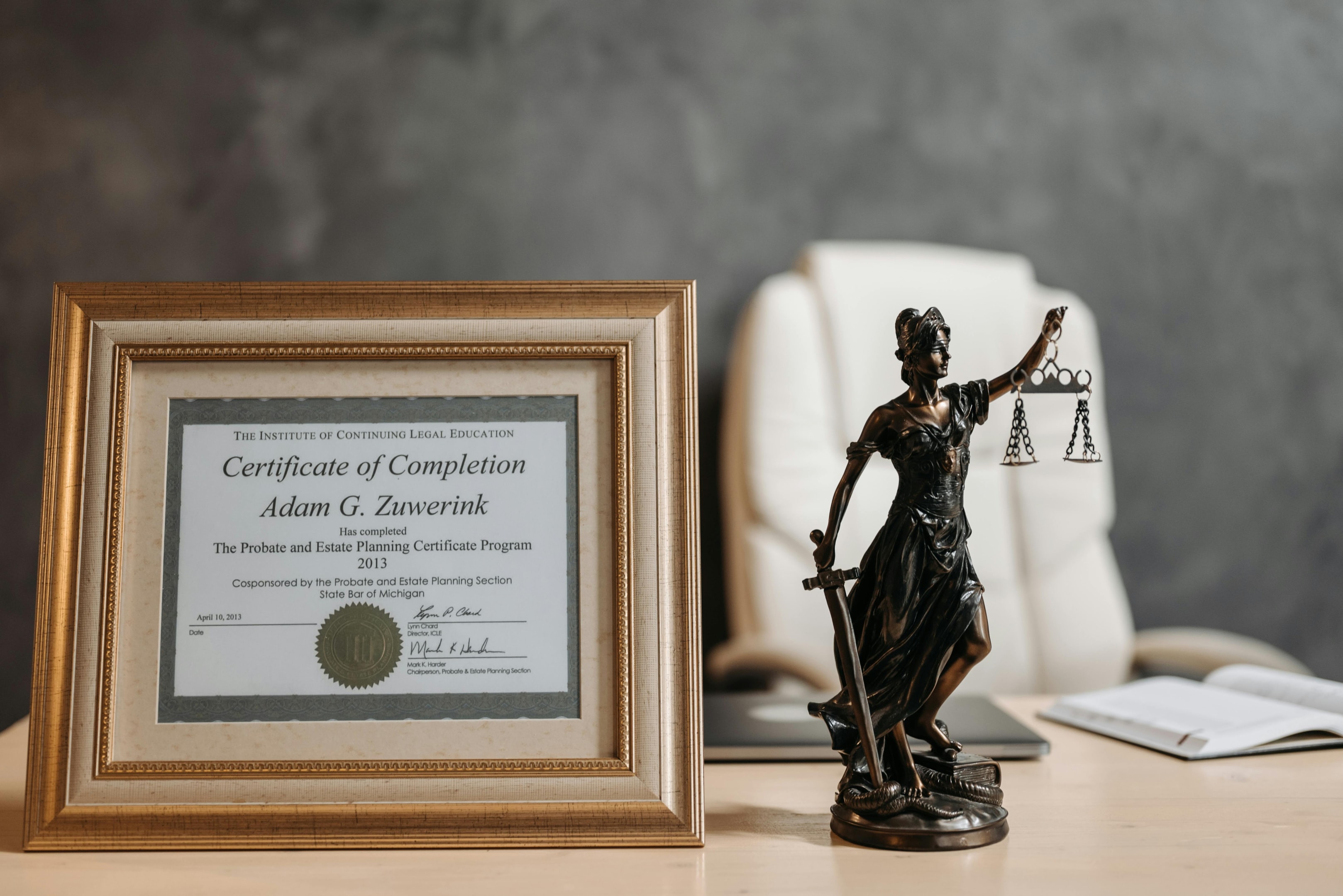Essential Guide: How to Sell Probate Property Quickly and Efficiently
If you're wondering how to sell probate property, this guide simplifies the process for you. We'll cover each critical step, from understanding probate to appointing an executor, hiring professionals, getting the property appraised, clearing the title, listing and marketing the property, negotiating offers, obtaining court approval, and finally closing the sale. Follow along to navigate these tasks successfully and efficiently.
Key Takeaways
Probate is a legal process for settling a deceased person's estate, requiring an executor to manage debts and asset distribution.
Selling probate property is often essential for settling debts, requires careful compliance with legal procedures, and necessitates obtaining court approval.
Engaging experienced professionals, such as probate attorneys and real estate agents, can facilitate a smoother sale process and ensure legal compliance.
Understanding Probate
Probate is the legal process of settling a deceased person's estate, making sure that all debts are paid, and the remaining assets are distributed to the rightful beneficiaries. The probate court verifies the decedent's intentions, especially when there is no will, and manages the estate's distribution. This formal probate process is triggered when someone passes away, particularly if there is no surviving spouse, to determine asset distribution. In some cases, the informal probate process may also be an option.
An executor administers the estate during probate, making key decisions for the deceased. In the absence of an appointed executor, the court will take action. The court designates an executor to handle responsibilities. This person must inventory the deceased's assets, notify creditors and beneficiaries, and meet all legal and financial obligations.
Knowing probate basics is crucial for anyone managing or inheriting a probate estate.

When Selling Probate Property Is Necessary
Selling probate property often becomes necessary to settle debts owed by the deceased, especially if there are insufficient cash reserves to cover these liabilities. In some cases, the probate court may order the sale if the deceased died without a will and has no immediate heirs, or if there are outstanding debts requiring attention. The proceeds from the sale of a probate property are typically used to pay off these debts before any remaining funds are distributed to the beneficiaries.
The executor oversees the sale process, ensures debts are paid, and distributes remaining assets according to the will or state law.
Selling real estate in probate can be a complex and emotionally charged task, but it is often a necessary step in settling the estate and providing closure for the family.

Steps to Sell Probate Property
Selling probate property involves several important steps, each needing careful attention and legal compliance. From hiring professionals to obtaining court approval, each step is vital for a successful probate sale.
Here, we detail these steps to guide you through the process.
Hire a Probate Real Estate Agent and Attorney
First, hire a probate attorney and a real estate agent experienced in probate sales. A probate attorney guides you through complex probate laws, ensuring correct procedures and reducing legal risks. Experienced probate attorneys provide invaluable assistance with probate administration and legal proceedings, streamlining the process.
Similarly, hiring an experienced real estate agent or other professional who understands probate sales is essential. These real estate agents are equipped to handle probate property challenges and conduct thorough inspections to uncover potential sale issues.
Together, these professionals efficiently navigate the probate process, ensuring the sale meets all legal requirements. If you are an investor in the probate space or want to learn more about getting started, read The Essential Guide to Investing in Probate Real Estate.

Get the Property Appraised
Getting a property appraisal is crucial to determine the home's sale price and meet court requirements. In a probate case, a licensed or court-appointed appraiser typically performs the property appraisal.
An experienced real estate agent can provide valuable insights into market value, ensuring the appraisal reflects current conditions. The probate attorney ensures all legal appraisal requirements are met, laying a solid foundation for the sale. Getting multiple opinions on the appraised value can be helpful to ensure the property is being evaluated correctly.
Clear Title to the Property
Before proceeding with the sale, it is essential to clear the title by settling all outstanding debts and liens against the property. This crucial step ensures that the property can be sold without any legal encumbrances, making it more attractive and marketable to potential buyers.
Clearing the title involves a thorough review of the deceased person's estate to identify and resolve any outstanding financial obligations linked to the property, such as unpaid taxes, mortgages, or other liens. This process may require coordination with creditors and legal entities to ensure that all claims are settled, thus securing a clear title that facilitates a smooth transfer of ownership. By addressing these issues upfront, the property becomes more appealing to buyers who are assured of a hassle-free purchase, ultimately contributing to a quicker and more successful sale.
List and Market the Property
After the property is appraised and the title cleared, the next step is to list and market it effectively. An experienced real estate agent in probate sales can create a comprehensive marketing strategy, including online listings, open houses, and local newspaper ads.
In addition to agents, probate properties are a popular investment strategy for wholesalers and traditional investors since the properties are often listed below market value, creating opportunities for buyers and ensuring a quicker sale. Marketing the real property "as-is" saves time and money, allowing executors to avoid repair and renovation costs before the sale.
More strategies for finding probate leads for realtors can be found here; this article can be utilized as a helpful resource for other real estate professionals as well.

Review Offers and Negotiate the Sale
After listing the property, review offers and negotiate the sale. The executor must ensure the offers are fair and closely align with the property's appraised value. This involves carefully considering each offer and assessing whether it meets the estate's needs and the beneficiaries' best interests.
Probate sales can attract competitive offers, leading to bidding wars that increase the final sale price. The executor, often with the real estate agent's help, negotiates the probate house sale terms to secure the best outcome for the estate.
Oftentimes, since the executor wants to sell quickly, they will settle for a price that is less than market value, but on a timeline that is much faster than a traditional home sale. The buyer will often cover closing costs and other fees in order to make the transaction go as smooth as possible. This situation is ideal for investors and wholesalers, who are often looking for motivated sellers.
Obtain Court Approval
Obtaining court approval is mandatory before finalizing the sale of a probate property. Executors must file a petition with the sales contract and other relevant documentation to seek court approval. This can be challenging for those unfamiliar with legal procedures, but it ensures the sale complies with all legal standards. Working closely with a probate attorney is helpful to guarantee documentation is complete and legal procedures are followed correctly.
Documents required for court approval typically include the sales contract and supporting paperwork. The court's oversight ensures the sale is conducted fairly and in the beneficiaries' best interests, preventing potential disputes.

Close the Sale
Once court approval is obtained, the final step is closing the sale. This involves completing legal and financial transactions to transfer ownership to the new buyer. Complying with legal standards is crucial for a smooth transition and to avoid post-sale issues.
The executor, with the help of the real estate agent or investor, personal representative, and attorney, oversees this process to ensure everything is handled properly.
Challenges in Selling Probate Property

Selling probate property can present several challenges, including delays from court involvement and the grieving process of families. Obtaining court approval for the sale can take weeks to months, slowing the overall selling process. The time to complete a probate sale varies, with supervised sales taking longer due to court oversight.
Another significant challenge is ensuring an accurate property value assessment, as disputes among heirs can arise if the value is contested. Transparency with heirs is crucial; keeping them informed about the sale process can prevent disputes and misunderstandings, facilitating a smoother and more timely sale.
Tips for a Smooth Probate Sale
Effective planning and organization are key to a smooth probate sale. Executors must manage the estate's financial affairs and meet all legal obligations. Hiring a knowledgeable real estate agent experienced in probate sales can provide valuable insights into setting a competitive listing price and navigating probate property challenges.
Clear communication channels with all parties involved, including heirs and potential buyers, facilitate smoother negotiations and decision-making during the sale. Ensuring the probate property is adequately insured during the selling process can protect against potential damage, safeguarding the estate's assets.
Costs Involved in Probate Sales
Selling a home in probate involves several costs that need careful management. Probate attorney fees vary and may be charged hourly, as a flat fee, or as a percentage of the estate's value. Executor fees can be reimbursed and are typically regulated by state law, allowing a charge of 3-5% of the estate's value.
Other costs include appraisal fees, necessary to establish the home's sale price and fulfill legal requirements, and notifications to beneficiaries and heirs, which often cost between $10 and $300.
Outstanding debts linked to the property, such as unpaid taxes or liens, must be resolved before the sale can proceed. Neglecting these obligations can complicate the closing process and result in financial losses.

Benefits of Selling Probate Property
There are several benefits to selling probate property. It helps settle estate debts quickly, allowing executors to pay off creditors and close the estate efficiently. Additionally, selling the property allows executors to expedite the distribution of remaining assets to heirs, simplifying the estate settlement process and providing closure to the family.
Alternatives to Selling Probate Property
Selling probate property is often necessary, but there are several alternatives worth considering. Joint Tenancy with Right of Survivorship allows property to transfer automatically to surviving owners upon death, bypassing probate. This method provides a seamless ownership transition without court involvement.
Another option is a Transfer on Death Deed, allowing property owners to designate beneficiaries who inherit the property directly upon the owner's death. The Enhanced Life Estate Deed allows property owners to retain control over their property during their lifetime while designating beneficiaries to inherit the property upon their passing.
These alternatives efficiently transfer ownership directly to heirs, avoiding the complexities of probate. For more information on these and other alternatives, talk to a local probate attorney in your area.

Summary
Selling probate property involves navigating a complex legal process, but with the right knowledge and preparation, it can be managed efficiently. Understanding the probate process, hiring experienced professionals, and following the necessary steps can lead to a successful sale. Effective planning, clear communication, and awareness of costs and challenges are crucial for a smooth probate sale. By considering the benefits and alternatives, you can make informed decisions that best suit your situation and ensure a positive outcome for all involved.
Since probate can be slightly different depending on which state you are in, it's important to have a thorough understanding of the laws in your area. Partnering with a probate attorney local to your area is very helpful for any questions that will arise. If you would like to see a breakdown of what the laws and regulations are in your state, read this list from The Legal Information Institute.
Frequently Asked Questions
Why is probate necessary?
Probate is necessary to legally settle a deceased person's estate, ensuring that all debts are paid and remaining assets are appropriately distributed to beneficiaries. This process provides an orderly resolution and protects the rights of all parties involved.
When should probate property be sold?
Probate property should be sold when there are debts to settle, particularly if cash reserves are lacking or if there are no immediate heirs available to inherit the property. This ensures proper management of the estate and fulfillment of financial obligations.
What are the main steps in selling probate property?
The main steps in selling probate property involve hiring a probate attorney and real estate agent, getting the property appraised, clearing the title, listing the property, reviewing offers, obtaining court approval, and ultimately closing the sale. Following these steps ensures a smooth transaction process.
What are the challenges in selling probate property?
Selling probate property presents challenges such as court-related delays, potential disputes between heirs, and the emotional strain on families involved. Addressing these issues is crucial for a smoother transaction process.
Are there alternatives to selling probate property?
Yes, alternatives to selling probate property include Joint Tenancy with Right of Survivorship, Transfer on Death Deeds, and Ladybird Deeds, which facilitate direct ownership transfer to heirs and bypass the probate process.